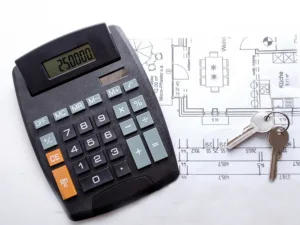Tracking construction project costs is essential for ensuring financial health and project success. Effective cost-tracking strategies are crucial in a dynamic industry where budgets can quickly spiral out of control. This article explores ten key methods for tracking construction project costs, offering insights into how contractors can optimize their financial management practices and mitigate potential risks. From establishing accurate budgets to analyzing tracked costs, each method plays a vital role in maintaining financial stability, meeting project objectives, and safeguarding profitability. By implementing these strategies, construction professionals can confidently navigate challenges, ensuring efficient cost management and successful project outcomes.
Table of Contents
Why Track Construction Project Costs?
Keeping a watchful eye on construction project costs is not just a strategy; it is necessary for companies in today’s competitive environment. But what drives this urgent need for cost control? The answer lies in the myriad benefits of effective cost tracking, each contributing to project success and business growth.
- Budget Management: From procurement to labor to overhead expenses, numerous costs are involved in a construction project. Tracking these costs in real-time ensures you’re staying within the allocated budget and can help identify areas of potential savings.
- Preventing Cost Overruns: Unplanned and unforeseen expenses are part and parcel of any construction project. Effective cost tracking allows you to spot these cost overruns early, enabling proactive mitigation before they escalate into more significant issues.
- Enhanced Decision-Making: Knowledge is power. Having accurate, up-to-date cost information at your fingertips allows for better decision-making. It can help manage resources more efficiently, prioritize tasks, and even renegotiate contracts if necessary.
- Increased Profitability: By identifying unnecessary expenditures and cost-saving opportunities, diligent cost tracking can directly contribute to the bottom line and increase the overall profitability of your project.
- Improved Client Relations: Transparency is key to building trust with clients. By tracking and sharing cost information, you demonstrate financial responsibility, which can lead to stronger client relationships and future opportunities.
- Benchmarking: Cost tracking provides valuable data for future projects. Understanding the actual costs incurred in a project can be used as a benchmark for estimating and planning future work, leading to more accurate bids and project proposals.
As we delve into this article, we’ll explore 10 effective ways to track your construction project costs. Each method will help you harness these benefits, offering unique approaches to enhance your construction cost tracking capabilities. So, are you ready to take control of your construction project costs? Let’s dive into the first method.
1. Establish an Accurate Budget
Creating a strong project budget is similar to building a strong foundation for a building; it requires thorough planning and a keen eye for detail. All too often, projects collapse at the budgeting stage due to overly optimistic estimates or a lack of thorough scrutiny. Therefore, starting with an accurate project budget based on informed judgment and past experience is imperative.
Before starting any project, it is important to review the estimate carefully. Rather than relying solely on industry standards, delving into your pricing structures and historical data is critical. This evidence-based approach ensures that profitability is not just a hopeful outcome but a tangible goal.
An accurate budget is a road map to financial success throughout the project’s life cycle. By carefully planning and controlling forecasts, you create a solid framework for tracking costs, managing resources, and ensuring profitability. As the project progresses, this budget is a benchmark against which actual costs can be measured, enabling effective cost control and informed decision-making.
2. Segment the Project Budget for Cost Tracking
A practical construction project cost-tracking strategy involves dividing the project into different phases or components. This segmentation allows the collection of performance data for each segment, facilitating the validation of future assessments. In addition, it serves as a diagnostic tool, revealing potential weaknesses in project implementation. For example, if electrical installations consistently exceed budgeted costs, segmenting costs by labor and materials can reveal critical issues. Adjustments can then be made to mitigate cost overruns, such as refining valuation techniques or exploring alternative suppliers. Similarly, if structural work does not consistently meet quality standards, cost allocation by labor, material costs and equipment can identify areas for improvement, leading to targeted training initiatives or equipment upgrades. By implementing this approach, project managers can proactively address cost issues, ensuring optimal use of resources and project success.
3. Delegate Cost Monitoring Responsibilities
Appointing a dedicated person to oversee cost tracking is pivotal in ensuring construction projects’ financial health and success. Larger companies often use specialized staff for this role, such as cost managers or quantity surveyors, while smaller companies may delegate these responsibilities to trusted team members, such as project managers or administrative coordinators. Regardless of the specific job title, a qualified individual dedicated to cost tracking increases the reliability and consistency of reporting by having a comprehensive understanding of all project costs. This designee plays an essential role in the cost control cycle, from establishing budget benchmarks to preparing critical documents such as cost reports and checklists. By carefully collecting and analyzing progress updates, invoices, purchase orders, and other relevant data, they can identify potential cost overruns or inefficiencies, allowing the project team to take timely corrective action. Whether it’s a cost manager, project manager, accountant, or administrator, the key is to entrust one person with the task of tracking project costs to ensure close oversight and accurate reporting throughout the project’s lifecycle.
4. Gather cost data
Effective management of construction project costs and changes requires a versatile approach, starting with systematically collecting cost information from various sources. This includes comparing data between paper and digital invoices, receipts, timesheets, and reports and using software tools such as Bauwise, which offers comprehensive construction cost tracking software. Although this process can involve numerous team members, the complexity of accurately tracking costs is evident, as statistics show that nearly 70% of construction projects are more than 10% over budget. However, thorough planning, accurate cost estimates, and a well-defined project budget are important pillars in mitigating such challenges.
5. Categorize Costs
To effectively track construction costs, it is important to categorize costs into different groups, each representing a specific aspect of the project. These categories typically include labor costs, material costs, equipment costs, subcontractor fees, permit costs, overhead costs, and contingency costs. By organizing costs into these delineated lines, project managers can streamline data analysis and more accurately identify problem areas. Such categorization increases the clarity and accuracy of financial reporting and facilitates proactive decision-making, allowing stakeholders to identify deficiencies and strategically allocate resources.
6. Establish a Baseline for Costs
To effectively track construction costs, developing a solid cost baseline is essential. This involves carefully preparing a comprehensive budget or estimate at the beginning of the project. This baseline essentially serves as a baseline against which all subsequent cost performance is measured. By establishing clear benchmarks from the outset, project managers gain invaluable information about cost trends, variances, and overall financial health as the project progresses. Moreover, the cost baseline provides an important framework for evaluating project viability, identifying potential cost overruns, and implementing timely corrective actions to meet financial goals. Thus, establishing a solid cost baseline creates the basis for informed decision-making and successful project implementation.
7. Track Actual Costs
During comprehensive construction cost monitoring, it is essential to regularly monitor and document the actual costs accrued throughout the project life cycle. Maintaining a comprehensive view of financial progress requires carefully recording all expenses, including labor hours, material quantities, equipment rental, and subcontractor fees. Accuracy and timeliness are of the utmost importance in cost control cycle ensuring that data stays on schedule with the project and accurately reflects the current situation. In addition, it is critical to keep on top of any schedule deviations, as delays can often require increased spending to mitigate setbacks. Recognizing schedule slippage as an indicator of potential financial stress underscores the importance of proactive monitoring and prompt corrective action to protect project finances and ensure successful project completion.
8. Compare actual versus estimated costs
An important step in effective construction cost tracking is comparing actual and budgeted costs to identify variances. By conducting this analysis, project managers and other stakeholders can gain valuable information about the factors that cause cost variances, whether due to changes in scope, unexpected conditions, or changes in market dynamics. Understanding these cost drivers is essential to making informed decisions and refining future projections. This process of comparing actual and budgeted costs helps identify areas for improvement. It enables proactive adjustments to project planning and resource allocation, ultimately improving cost management practices and project outcomes.
9. Conduct Cost Forecasting
Accurate cost forecasting is essential for making informed decisions and mitigating risks in construction cost monitoring. Project managers can use historical cost data and trends to accurately forecast future costs, considering variables such as inflation, productivity rates, market conditions, and possible scope changes. By including these factors in the forecasting process, stakeholders can anticipate financial needs and proactively address issues before they escalate. A reliable cost estimate not only improves project planning and resource allocation but also empowers teams to effectively navigate uncertainty, ensuring project success while maintaining financial stability. Use construction cost tracking software like Bauwise which offers automatic cost forecasting features so you and entire team can see each line item cost forecast in your budget.
10. Analyze Tracked Costs
Effective project management requires a thorough analysis of cost performance throughout the project life cycle to ensure adherence to budget constraints and timely completion. By comparing actual costs to budget estimates, project teams can quickly identify deviations and take proactive measures to mitigate potential cost overruns. Key metrics such as cost performance index (CPI), earned value, and variances are invaluable tools for evaluating a project’s financial health and compliance with cost goals. While external factors beyond the contractor’s control may occasionally contribute to cost overruns, careful monitoring and analysis allow timely adjustments to control costs. This continuous cost-effectiveness evaluation empowers project stakeholders to make informed decisions, maintain financial stability, and optimize project outcomes.
Conclusion
In conclusion, effective construction cost tracking is essential for ensuring project success and profitability. By implementing the ten methods outlined in this article, contractors can gain greater control over their projects’ financial health and outcomes. From establishing accurate budgets and segmenting project costs to tracking actual expenditures and conducting cost forecasting, each method offers valuable insights and tools for managing costs effectively. Project teams can identify variances and proactively mitigate potential overruns by analyzing tracked expenses and comparing them to budgeted costs. By adopting these cost-tracking strategies, construction professionals can track construction project costs, optimize resource allocation, maintain financial stability, and achieve project objectives while preserving profitability and reputation. With careful planning, organization, and reporting, contractors can confidently navigate challenges and ensure successful project outcomes.
Written by

Taavi Kaiv
Taavi Kaiv is a construction specialist with over ten years of experience in the construction industry. Taavi is an accomplished construction project manager with many successful construction projects that have been completed under his guidance. Taavi holds a master’s degree in construction management from the Tallinn University of Technology. View profile
Related posts
Read our articles where you can find useful and relevant information about construction cost tracking:
- Understanding construction cost control
- Ultimate guide to construction cost management
- Construction cost management: All you need to know
- How to Manage Construction Costs: A Comprehensive Guide
- 10 Tips to improve cost control in your construction projects
- 12 Tips for Keeping Your Construction Projects on Track
- The Importance of Tracking Construction Project Costs






